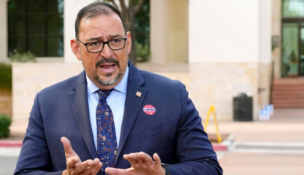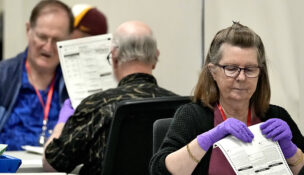Still an Issue: Immigration measures overshadowed by budget, but not completely
Arizona Capitol Reports Staff//February 13, 2009//[read_meter]
Still an Issue: Immigration measures overshadowed by budget, but not completely
Arizona Capitol Reports Staff//February 13, 2009//[read_meter]
In most years, illegal immigration is one of the hottest topics in Arizona politics. But with the state budget in the red by billions of dollars, the usually high-profile issue...
No tags for this post.

















